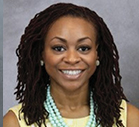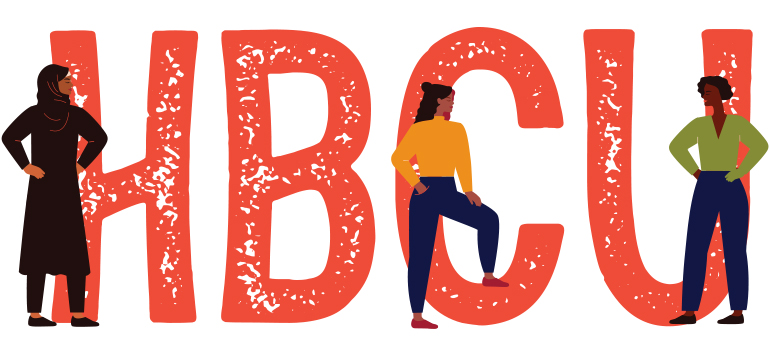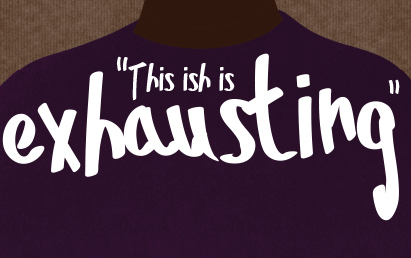Expanding the Reach of MFT Education and Training
As an alumna of Tougaloo College, one of the oldest Historically Black Colleges and Universities (HBCU) in Mississippi, I have first-hand knowledge of the power and potential that are bred on the sacred grounds of these necessary institutions across the nation. HBCUs are defined as institutions of higher education that were founded prior to 1964 to provide educational opportunities for Black people in the United States (U.S.) during a time of legal segregation.
They were birthed out of necessity and sheer determination to educate Black people who faced discrimination, separatism, and even physical violence for merely making attempts to gain an education and better conditions for themselves, their families, and their communities.
I very intentionally use the term sacred when describing HBCUs in an effort to acknowledge the monumental impact these institutions have made not only on the Black American community, but on our nation and world as a whole. Despite HBCUs only accounting for 3% of degree granting institutions in the U.S., approximately 80% of Black judges, 50% of Black lawyers and physicians, 40% of Black members of congress, 40% of Black engineers, and 25% of Black undergraduates who earn STEM (science, technology, engineering, and mathematics) degrees are all HBCU alumni (Harris, 2019; Thurgood Marshall College Fund, n.d.). At their inception, HBCUs became safe havens for members of the Black community and spaces where Black intellect and innovation were stimulated, nurtured, and celebrated. Countless trailblazing scholars, activists, creatives, executives, and others, such as W.E.B. Du Bois, Nikki Giovanni, Marian Wright Edelman, Oprah Winfrey, Spike Lee, and Kenya Barris were educated at HBCUs.
Today, there are 101 HBCUs (across the U.S. and the Virgin Islands) and the largest of them accommodate student populations that span between 7,000 and 11,000 students of various ethnicities (Anderson, 2017). Of these 101 institutions of higher education, 27 of them offer doctoral programs, 52 offer master’s programs, 83 offer bachelor degree programs, and 38 of them offer associate degrees, yet none of them offer degrees in couple/marriage and family therapy (C/MFT) from an accredited program. As a body of helping professionals committed to diverse and inclusive practices, we must question our intent when in the year 2020 there are no C/MFT programs at Historically Black Colleges or Universities. How serious are we about promoting and celebrating racial diversity within our beloved discipline? Even in the face of inadequate resources and lack of appropriate funding support, the strength and significance of HBCUs in our society today is undeniable. Black individuals flooded these institutions at a time in history where they literally had nowhere else to go to earn an education. Although individuals seeking higher education can now legally pursue a degree wherever they would like, the safety, validation, encouragement, and sense of belonging that most Black students experience at HBCUs is unlike anything they could experience elsewhere. Besides the obvious reason of the desire to obtain a quality education, these unique cultural strengths of HBCUs help to sustain their relevance in the 21st century.
Currently, there are 128 accredited C/MFT programs in the U.S. and Canada, and they are all located at historically White institutions. Moreover, data show White students make up 49% of all students attending accredited programs, 73% of all faculty are White along with 71% of all clinical supervisors (Commission on Accreditation for Marriage and Family Therapy Education, 2019).
This disparity has real implications for our field, the quality of training and education we are providing to students, and ultimately the effectiveness of our work not just with Black clients, but all clients.
I started my journey to becoming a family therapist 10 years ago, completed two years of training in my master’s program, two years of post-graduate supervision, completed an additional four years of advanced clinical training to earn my doctorate, and I have yet to receive training or clinical supervision from a Black systemically trained therapist, and this is a serious problem. This disparity has real implications for our field, the quality of training and education we are providing to students, and ultimately the effectiveness of our work not just with Black clients, but all clients. Not only are we at a critical juncture societally, but we are at a critical juncture as a profession as we come to terms with some hard truths about who we are and how we perpetuate White supremacist ideologies and Eurocentric practices.
Too often, when many individuals hear the term White supremacy, they immediately envision White nationalist groups, like the Klu Klux Klan or the domestic terrorist who took the innocent lives of the Charleston 9 at Emanuel African Methodist Episcopal Church in 2015. The reality, however, is that White supremacy permeates commonplace systems and institutions that we all belong to on a constant basis—it is, unfortunately, our status quo. Manifestations of White supremacy within our discipline are evident in the fact that all of our prominent models of therapy were developed by White individuals, all of our accredited programs exist at historically White institutions, the majority of our faculty and clinical supervisors are White practitioners, nearly every AAMFT national president has been White, along with the current and past editors of the Journal of Marital and Family Therapy. At its core, White supremacy in our discipline involves the multitude of ways in which Whiteness is upheld as the ultimate standard. I can’t help but question, “Who does this discipline truly exist for and how do we promulgate that message through our structural and systematic practices as a collective group of individuals and practitioners?”
Before we can even begin to strategize about ways to best meet the needs of racially diverse clients, it is imperative that we first become intentional about eradicating institutional racism that exists within our field. Fundamental change requires intentional action that transcends boilerplate diversity and inclusivity statements and pat responses to critical questions. In order to continue on our current trajectory and maintain the status quo, it requires absolutely nothing of us. We exist in a culture where White supremacy is the default. However, to influence true and substantive change, we must actively work to disrupt perpetuations of oppression that are marginalizing and exhausting. These are not issues that we can continue to ignore, respond passively towards, or simply rely on the hope that things will gradually improve with time. If we were going to serendipitously become a more racially diverse and less Eurocentric discipline without changing policies and procedures, it would have occurred by now. A crucial and conscious decision for us has to be establishing accredited C/MFT programs at Historically Black Colleges and Universities. This would open doors of opportunities for Black students who have interests in entering the mental and behavioral health field but unfortunately have no inkling that our discipline in particular even exists.
A recent article entitled, ‘Bear Our Pain’: The Pleas for More Black Mental Health Workers, published by National Public Radio (NPR; Noguchi, 2020), detailed the traumatic accounts of Kai Koerber, a young Black man who survived the Parkland, Florida school shooting in 2018. Koerber described his personal journey of addressing his mental health needs in the aftermath of the mass shooting. He stated, “Finding a Black therapist really saved me some time, and there was more connection, in terms of the kinds of struggles that I might feel or the kind of ways I might think about certain scenarios” (Noguchi, 2020). Being able to work with a therapist that he could identify with culturally was a pivotal experience for Koerber. However, the demand for well-trained Black clinicians is great, particularly during a global pandemic where Black people and other ethnic minorities are disproportionately affected and amidst a time of increased racialized tension in our nation. Despite popular misconceptions that Black people do not pay attention to their mental health needs, I argue that Black people have an extensive history of being quite perceptive when it comes to their mental health. It simply does not always resemble the behaviors or responses that we witness from majority culture. Because Black people are an incredibly heterogeneous group, the strategies that people employ to attend to their mental health is also wide and varied. A more accurate interpretation of many Black individuals’ perceptions of the professional mental health community is that they justifiably often mistrust a system that has a well-documented history of exploitive practices against Black people, such as misdiagnoses and mistreatment. Not only is the Black community in need of more competent and systemically-trained clinicians, but the field of family therapy is also in need of theories, research, and clinical approaches that are spearheaded by Black individuals. What I am advocating for is not simply more Black faces to include in brochures, webpages, and marketing materials. I am calling for systemic and systematic transformation that attends closely to the allocation of power and decision-making within our profession that will ultimately de-center Whiteness.
Every day in this profession we are writing our history. When we look back on this critical moment in the next 10 years, and reflect on the decisions that we made and did not make, we will have to deal with those consequences. How do we want our history to read? What actions will we have taken to dismantle Whiteness? What structural changes will we have implemented to combat racism and specifically anti-Blackness? We are beyond the point of needed action and are now at a point of deciding whether or not we will remain viable in a society where the masses are literally crying out and demanding to be heard in the fight for racial and social justice. Our leaders and the membership bear the responsibility of engaging in critical self-reflection and questioning how we are either dismantling White supremacy or supporting it (which can be done both actively and passively). Anti-apartheid and human rights activist Desmond Tutu delivered a powerful message when he stated, “If you are neutral in situations of injustice, you have chosen the side of the oppressor.” (Brown, 1984, p. 19). Leaders of AAMFT and the Commission on Accreditation for Marriage and Family Therapy Education (COAMFTE) with presidents and administrators on the campuses of HBCUs have a unique opportunity to literally do something that has never been done but that has the potential to literally influence a paradigm shift within the field of couple/marriage and family therapy. Actively rejecting White supremacy, embracing new perspectives, and demonstrating intentionality towards expanding the reach of systemic clinical training and education is essential to moving the field forward and remaining relevant in a world that is saying no more to complacency and stagnation.

Leslie A. Anderson, PhD, LMFT, is an AAMFT Clinical Fellow and recently graduated from the University of Georgia where she studied Human Development and Family Science with an emphasis in Marriage and Family Therapy. She is currently an assistant professor in the School of Child and Family Sciences at the University of Southern Mississippi. She seeks to help amplify the voices of underserved and underrepresented individuals through her research and clinical approaches.
REFERENCES
Anderson, M. (2017, February 28). A look at historically black colleges and universities as Howard turns 150. Pew Research Center. Retrieved from https://www.pewresearch.org/fact-tank/2017/02/28/a-look-at-historically-black-colleges-and-universities-as-howard-turns-150
Brown, R. M. (1984). Unexpected news: Reading the Bible with third world eyes. Philadelphia, PA: Westminster Press.
Commission on Accreditation for Marriage and Family Therapy Education. (2019). Self-report demographic data [chart] in COAMFTE annual reports. Alexandria, VA: AAMFT.
Harris, A. (2019, May 16). Why America needs its HBCUs. The Atlantic. Retrieved from https://www.theatlantic.com/education/archive/2019/05/howard-universitys-president-why-america-needs-hbcus/589582
Noguchi, Y. (2020, June 25). ‘Bear our pain’: The plea for more Black mental health workers. National Public Radio. Retrieved from https://www.npr.org/sections/health-shots/2020/06/25/877549715/bear-our-pain-the-plea-for-more-black-mental-health-workers
Thurgood Marshall College Fund. (n.d.). About HBCUs. Retrieved from https://www.tmcf.org/about-us/member-schools/about-hbcus
Other articles
“Academia was not created with me in mind”
Faculty of color are disproportionately underrepresented in higher education. While colleges and universities across America have seen increased growth in diverse students attending college, there appears to be an imbalance in representation of racially diverse faculty.
Denise Williams, PhD
Breaking the Codes of Silence: Interracial Couples in Therapy
Interracial couples often choose to avoid discussions of difference and their experiences of prejudice and racism. This silence can hinder the level of connection and intimacy in a couple’s relationship, and microaggressions can occur in a variety of contexts, including the therapy room.
Kyle D. Killian, PhD
“This Ish is Exhausting” Acknowledging the Emotional Labor of Black MFTs
Although we are systemic therapists, we are still Black people with legacies of historical trauma, racial injustice, and resilience. We must find ways to process and handle additional layers of stress, mental and emotional strain that we carry from our clinical work.
Joslyn Armstrong, PhD



